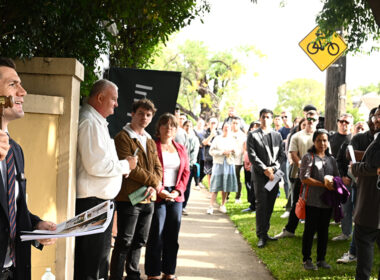The practice of police in NSW entering private property to check someone on bail, without a court-imposed enforcement condition or reasonable suspicion of a bail breach, was recently found likely to be unlawful, by the Law Enforcement Conduct Commission (LECC). Reliance on the common law doctrine of implied licence for these checks was inconsistent with the Bail Act, according to the LECC. The Commission recommended that police seek court-ordered enforcement conditions for all bail compliance checks and to update Standard Operating Procedures. The legality of the checks will be determined by two test cases run by the Justice and Equity Centre in the Supreme Court.
In May 2024, the Law Enforcement Conduct Commission (‘LECC’) released an Issues Paper calling for submissions on questions around the legality and appropriateness of police bail check practices in NSW.
This was prompted by growing concerns about the lawfulness of the police practice of entering private property without court authorisation, or reasonable suspicion of a breach of bail, to check compliance with bail conditions – particularly curfew and residence conditions. The LECC’s review examined only these ‘pre-emptive’ or ‘targeted’ checks.
The LECC received 18 submissions from interested stakeholders, including the Justice and Equity Centre (‘JEC’), the NSW Bar Association, the Law Society of NSW, the Aboriginal Legal Service (NSW/ACT), Legal Aid NSW, the NSW Children’s Court, and the NSW Police Force.
In April 2025, the LECC published its Final Report. It concluded there is ‘a powerful argument’ that these targeted bail compliance checks without court authorisation are unlawful. The LECC called on police to stop these checks.
The legal framework
The Bail Act 2013 (NSW) (‘Bail Act’) establishes a framework for determining whether a person charged with an offence should be released (‘on bail’) or detained while awaiting trial.[i]
Bail may be granted subject to conditions that address specific ‘bail concerns’, such as the risk of reoffending or failing to appear in court.[ii] Common conditions include curfews and residence requirements.[iii]
Courts may also impose ‘enforcement conditions’, which require people on bail to comply with specific police directions for monitoring or enforcing compliance with underlying bail conditions – for example, a police direction to undergo a drug or alcohol test (the enforcement condition) to verify that a person is complying with a condition not to consume drugs or alcohol (the underlying bail condition).[iv] Enforcement conditions must be:[v]
- requested by the prosecutor,
- imposed by a court,
- not unduly onerous, and
- reasonable and necessary, having regard to a number of considerations including the impact on other people.
Section 77 empowers police to take action (including arrest) if they believe on reasonable grounds that a person has breached, or is about to breach, a bail condition and s 81 grants the power to give directions further to an enforcement condition.[vi] These powers exist in addition to ordinary police powers to stop or search a person or vehicle or enter property if they believe or suspect certain involvement with criminal offending, under the Law Enforcement (Powers and Responsibilities) Act 2002 (NSW).
Police reliance on implied licence
NSW Police routinely conduct targeted bail compliance checks without first seeking court ordered enforcement conditions, relying instead on the common law doctrine of implied licence.[vii] This doctrine allows the general public to enter property and approach the front door without committing a trespass, provided they are doing so for a legitimate purpose – for example, knocking on your neighbour’s door to ask to retrieve a football from their garden.[viii]
The JEC and others suggest police reliance on the doctrine for these checks is inconsistent with the Bail Act and amounts to unlawful trespass.
The LECC expressed support for this view, concluding it is ‘powerfully arguable that an enforcement condition is required and that the doctrine of implied licence is excluded as a matter of statutory construction’.[ix]
LECC recommendations
The LECC concluded that even if not unlawful, the implied licence is not an appropriate form of authority for these checks[x] including because statutory safeguards ‘may be undermined’ if checks involve entry onto private property without an order of the court.[xi]
‘Given the intrusive nature of such compliance checks, they should only be undertaken when approved by a court… the doctrine of implied licence (if it is available at all) is a vague, weak and cancellable form of authority.’[xii]
The LECC recommended:
- Police should seek enforcement conditions from a court in all cases where authority to conduct checks on private property is sought, and reliance on the doctrine of implied licence should be discontinued.
- Police Standard Operating Procedures should be updated to reflect the first recommendation.
- If police do not implement the first and second recommendations, the Attorney General should amend the Bail Act to clarify the exclusion of that type of check.
The LECC did not express a definitive view on lawfulness, acknowledging proceedings in the Supreme Court of NSW which ‘if litigated to finality, are likely to determine’ this question.[xiii]
‘It is, of course, a matter for the Supreme Court to determine the question of lawfulness of police practice in this area. It is not for the Commission to seek to decide this legal issue.’[xiv]
Supreme Court test cases
In 2024, the JEC filed two test cases in the Supreme Court of NSW on behalf of mothers of Aboriginal children subjected to the types of check examined by the LECC.
For Megan,[xv] a single-mother of three young boys living in regional NSW, police conducted 153 bail compliance checks over 20 months on her two sons, aged 11 and 13. 55 of these attendances were between the hours of midnight and 4am.
Megan: ‘It’s made me scared and stressed. It’s affected my sleep. Being woken up at all hours made us all exhausted. The boys missed school because they were too tired to go.’ [xvi]
For Joanne,[xvii] a single mother of three living in Western Sydney, police conducted more than 90 police visits over 18 months.
Joanne: ‘The checks felt relentless. Once there were three checks in just a few hours. Police seemed to just do whatever they wanted, and completely ignored what the court said about how much they were allowed to come.’[xviii]
These cases seek to answer important questions regarding the limits of the coercive powers of the state and the protection of civil rights in NSW.
Where to next?
The NSW Government hasn’t publicly responded to the LECC’s recommendations. In the meantime, the JEC’s two test cases are progressing through the Supreme Court. If litigated to finality, these proceedings will resolve the matter and deliver a definitive ruling on whether the implied licence doctrine can be used to authorise police entry onto private property for the purpose of bail compliance checks and whether NSW Police have committed a significant number of unlawful trespasses, in the conduct of their bail checks practices.
Kate Sinclair is a Solicitor at the Justice and Equity Centre
[i] Bail Act, s 3.
[ii] Bail Act, ss 17, 20A, div 3 pt 3.
[iii] These are both ‘conduct requirement’ conditions under s 25 of the Bail Act.
[iv] See Bail Act, s 81(a).
[v] Bail Act, s 30.
[vi] Section 81 of the Bail Act also empowers police to give a direction if a police officer has a reasonable suspicion that the accused person has contravened the underlying bail condition in connection with which the enforcement condition is imposed.
[vii] The ‘Bail Compliance Check Standard Operating Procedures’ tell police they may conduct bail compliance checks in the absence of an enforcement condition, relying on implied licence: see Final Report, p 33.
[viii] There is significant uncertainty regarding the scope and availability of the implied licence as it relates to police, following the split decision of the High Court of Australia in Roy v O’Neill [2020] HCA 45.
[ix] Final Report, p 29.
[x] Final Report, p ii.
[xi] Ibid.
[xii] Ibid.
[xiii] Final Report, p 28.
[xiv] Ibid.
[xv] Megan is the plaintiff in MA v State of NSW. A pseudonym has been used to conceal her and her family’s identity, consistent with court orders in the ongoing proceedings.
[xvi] Justice and Equity Centre, Submission to the Law Enforcement Conduct Commission – Bail Compliance Checks in NSW – Issues Paper (Submission, 25 July 2024), p 25.
[xvii] Joanne is the plaintiff in JA v State of NSW. A pseudonym has been used to conceal her and her family’s identity, consistent with court orders in the ongoing proceedings.
[xviii] Op cit, n xvi, p 11. Joanne’s case raises the distinct issue of whether in circumstances where police have obtained a court ordered enforcement condition, but conduct checks in excess of its requirements as to time of day and frequency, those checks are unlawful.




